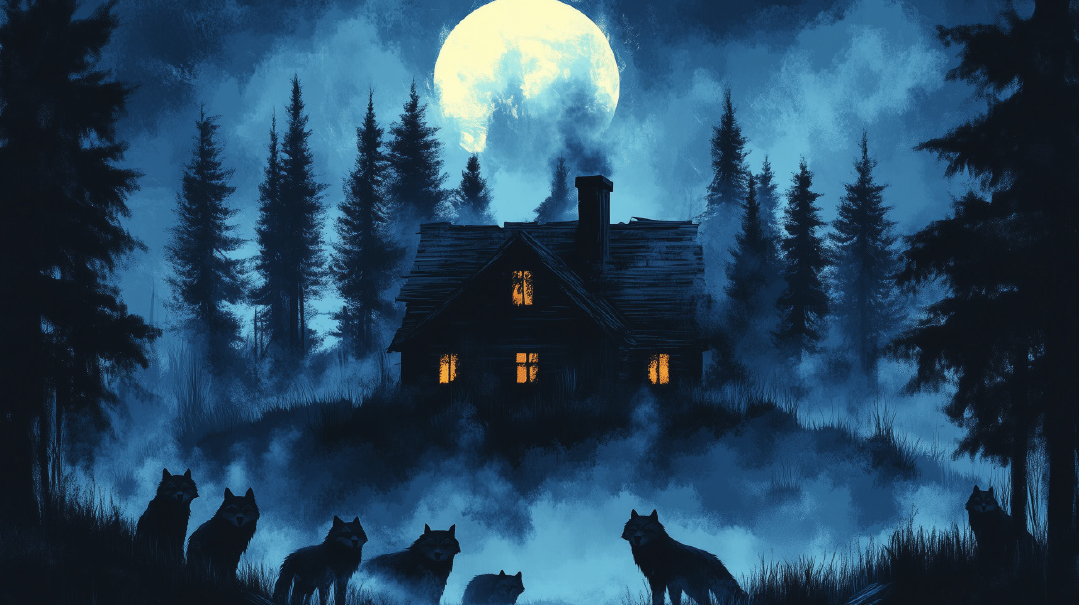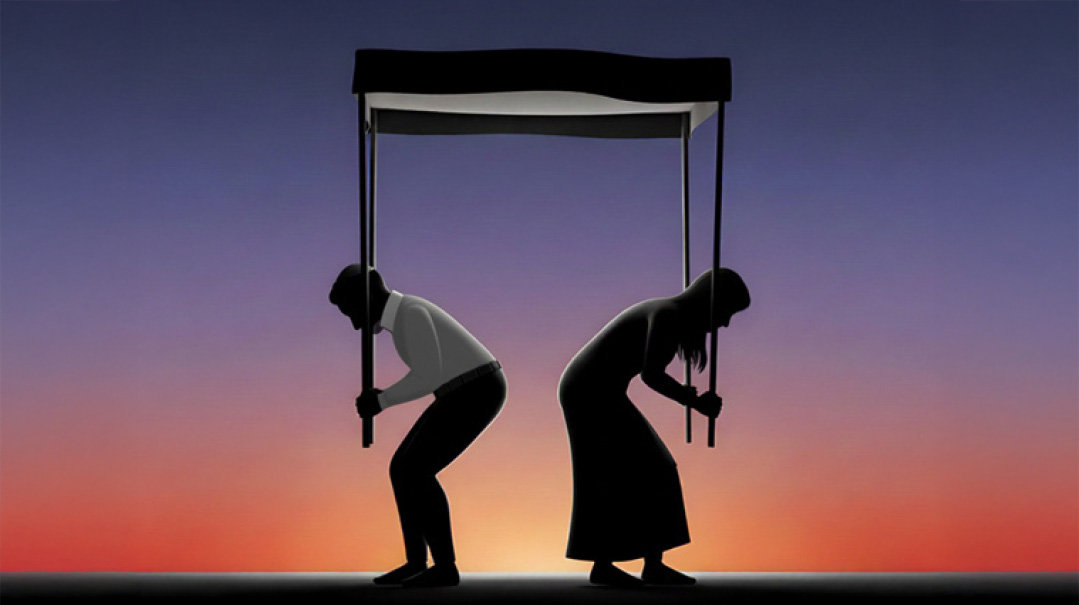A Succos Fable

The year went on and the disillusionment grew only stronger. The little family felt very, very alone

Once upon a time there was a little family. They didn’t have much wealth, influence, or brawn. What they did have was a small patch of land left to them by their grandparents, and that’s where they made their home.
Unfortunately for the little family, the little patch of land was in a bad neighborhood. At night, rocks sometimes shattered their windows. When the children weren’t careful to lock up their bikes, sometimes they went missing. And then there were worse things, scarier things. Sometimes the neighbors made threats: You have no right to that house of yours, it’s really ours. We’re going to get rid of you and take it back.
The family huddled together and tried to ignore the threats, but then they checked the news and found out that the violent neighbors had guns and rockets and were training their teenagers to use them.
The family was scared.
But not for long, because they came up with a great idea. They built a big, beautiful fence around their property. They even attached high-tech sensors to the fence, so they would know if the neighbors were trying to invade.
They asked their teenage daughter and her friends to keep monitoring the sensors. And they got their teenaged son and his friends to learn how to use guns, too, even bigger and better guns than the bad neighbors had.
They were smart, the little family. They knew that it wasn’t enough to keep a wary eye out for danger. They had to make Friends in High Places. So they asked some uncles in a faraway country to lobby the leaders there, and some cousins in a different country to explain to their politicians how their family’s values were so perfectly aligned with those countries’ values — they were really all on the same team, of course they would support one another in a time of crisis.
They also found hope in a big strong politician in a country far away who said that if he were put in charge, then the family would be safe. No one would even think of hurting them! So the little family did whatever they could to marshal support for that big, strong man. Because he was going to keep them safe.
The family realized, with time, that the bad neighbors had made different sorts of friends — friends with the power of the pen (or keyboard). Those friends were spreading vicious rumors about the family. Things like: they live on stolen land. Or: they persecute and repress people they consider inferior. So the family asked some articulate relatives — one had a British accent, which was even better — to make their case on the screens and in print. It was a little discouraging when that campaign didn’t go as well as expected, but they kept at it anyway.
Like many families, this family didn’t always agree on everything. Sometimes, I’m sorry to say, they even fought. One year there was a very long and ugly fight that had them shouting and threatening and accusing one another of trying to destroy the home they had built.
The teenage girls monitoring the screens saw some strange things, but their Very Important and Vastly Superior uncles brushed their concerns aside. They were just little girls, really. And some of the boys with guns, who’d become men, had also become very enlightened. So enlightened that they were a bit ashamed to associate with the superstitious, slightly primitive grandparents who made all kinds of extreme demands. Under their breath, they whispered that they weren’t sure they could remain faithful to their pact to defend the family, when they had lost their pride in it.
All this fighting was silly, and sad, and very risky, too — because someone was in fact trying to destroy them. Only it wasn’t their sisters or brothers or uncles or grandmother. It was the neighbors, who weren’t blind or deaf to the strife that was consuming the little family.
When the neighbors broke through the fence early one morning, the girls and their screens couldn’t fight them off. The boys with their weapons waited for orders to come fight — but the orders didn’t come during those critical morning hours when the parents and younger children, who were under attack, kept calling and calling the central command, begging for help.
So the neighbors had hours to kill, maim, torture, and destroy the family.
The family collapsed.
Then, wounded and bleeding, the surviving family members picked themselves up and began a long, hard year of defending their little patch of land. Together, during month after difficult month, they discovered strength, resources, and grit they hadn’t even known they possessed.
They also discovered something else. All those pillars upon which they’d built their sense of security — the false gods in whom they’d entrusted their faith — were a lot shakier than they’d dreamed. Some had even crumbled entirely.
At the moments they needed support and arms, the influential Friends in High Places clucked and tsked and sermonized about de-escalation and restraint.
Before they’d even processed the scale of their neighbors’ barbarism, all those writers with eager print and digital audiences asked, “Hmm, well, are you sure there isn’t another side to this story?”
The extremely educated presidents of the world’s finest academic institutions couldn’t quite figure out the fine line between questioning the family’s priorities and calling for their eradication.
And curiously enough, the human rights advocates who were supposed to transcend all boundaries of nationality, ethnicity, or political affiliation somehow never realized that it might be the humane thing to check on those poor relatives who had been snatched by the neighbors.
The year went on and the disillusionment grew only stronger. The little family felt very, very alone.
So, when the 15th of Tishrei arrived, they did the only thing they could. They built a little hut. It didn’t have reinforced concrete walls or double-bolted doors. It didn’t have a high-tech fence or any sensors to guard it. It didn’t even have a proper ceiling.
Inside the little hut, they set up a flimsy folding table and some chairs. They shut their screens and stopped reading what this world leader and that foreign minister and this politician and that ambassador had to say about how they had failed yet again. They stopped mentally rewriting the headlines that got their story — and their morality — so, so wrong.
Instead, they sat around the flimsy folding table that, covered in white and set with festive fare, suddenly seemed less flimsy than before. And they ate, and they sang, and they basked in the protection of the only One who could really ever keep them safe.
The End
(Originally featured in Mishpacha, Issue 1033)
Oops! We could not locate your form.







